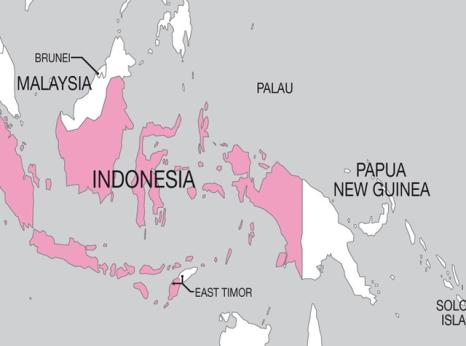Indonesia: Environmental Rights Defender Must Be Released

On 4 April 2017, villagers from Sumberagung in Banyuwangi, East Java Province, Indonesia, peacefully protested a new gold mine in Salakan Mountains as they believe that mining activities in the area are responsible for causing ecological destruction and endangering the safety of nearby villages. Budi joined the villagers in creating protest signs, which they later placed along the way from the Red Island Beach to the Pesanggaran District Office. Later that evening, two men who claimed to be from the military told Budi that they had received reports that a banner used in the protest bore a hammer and sickle logo, a symbol of communism. Budi said he did not know who had painted the logo on the banner.
The Banyuwangi Prosecutor’s Office ordered the arrest of Budi on 4 September 2017 for allegedly displaying a communist logo, aiming to “spread communist ideology”. As the sole individual arrested, he was sentenced to ten months imprisonment on 23 January 2018 by the Banyuwangi District Court for violating Article 107a of the Criminal Code for “Crimes against State Security”. He was found guilty of three primary charges; spreading Communist ideology, not notifying local policy about a protest according to Law No. 9/1998 and, as the leader of the protest, openly promoting pro-communism ideology by displaying of hammer and sickle symbol during the protest. Budi’s legal counsel and the public prosecutor appealed the verdict on 26 January 2018.
The East Java High Court upheld the lower’s court ruling, prompting both sides to file appeals to the Supreme Court. Budi served his sentence until his release on 1 July 2018. However, on 16 October 2018, his cassation appeal was rejected, and the Supreme Court increased his punishment from ten months to four years imprisonment. In November and December 2018, Budi received two summonses from the prosecutor’s office to serve the remaining of his sentence. However, at that time, Budi had yet to receive the copy of the verdict, which is a prerequisite for prosecutors to execute a court’s ruling, as in accordance with Indonesia’s Criminal Procedural Code (KUHAP). Subsequently, there were no further updates on his incarceration, as authorities did not take any further action.
On 24 March 2023, nearly five years after his release, dozens of officers from the police and prosecutor’s office came to Budi’s house and arrested him, claiming that they were executing the 2018 Supreme Court’s verdict. The arrest was led by the police and came only three days after nine unidentified people reportedly came to Budi’s house in the evening of 21 March 2023 and destroyed a protest sign against the gold mining that had been hung at his house for years. Less than a week before, a team from the mining company that operated in the area conducted a geological mapping in Salakan Mountain, escorted by members of the local police, military, and the public order agency on 16 March. The prosecutors denied that Budi’s arrest was related to the company’s activities. Budi currently remains in detention at the Banyuwangi Prison.
NGOs who advocate for the case believe the allegations to be based on false accusations against Budi and to be a form of criminalization aimed to stifle his work as a human rights defender who fights for his community’s right to a clean ,healthy and sustainable environment. According to his legal counsel, there were no reliable evidence presented during the trial that clearly demonstrates his involvement in any criminal activity. During the trial, prosecutors also did not present the physical evidence of the disputed banner before the court.
The legal provisions banning the spreading of communist ideology originally dated back to a period of severe human rights repression under then-president Soeharto’s New Order regime between 1965 and 1998. The anti-communism campaign resulted in the death of hundreds of thousands and violations of other human rights, including to freedom of expression and peaceful assembly.
Human rights defenders in Indonesia are increasingly harassed and criminalized when state and economic actors perceive their activities as hindering natural resource extraction and production schemes From January 2019 to May 2022, Amnesty International recorded 328 cases of physical and digital attacks against human rights defenders with 834 victims in Indonesia, including environmental activists who defended the right to a healthy and clean environment.